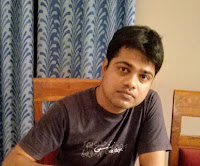A.K. Ramanujan: A Great Indian Poet
A.K. Ramanujan occupies a prominent place as a gifted poet in the world of Indian English poetry. He has earned great popularity for his literary contribution. He is widely read in the entire world. For his contribution the government of India gave him the Padma Shri award in 1976. In 1983, he was given the MacArthur Prize Fellowship.
A.K. Ramanujan was born on Mysore in 1929. He received his master degree in English language and literature from the University of Mysore. He went to America in 1959. He became an assistant professor at the University of Chicago in 1962. He became very popular after the publication of his two volumes of poetry - The Striders (1966) and Relations (1971).
As a poet Ramanujan seeks direct meaning to life. His poetry reflects the touch of humanity, Indian ethos and pertinence of life. Multiculturalism is visible in his poetic world. But his poetry is essentially Indian in material and sensibility. His poems are about life, death, cycles of birth, pain and love.
Ramanujan is a prestigious member of Indian Diaspora. So memory plays an important role in his creative world. As a poet he returns towards his root to receive subject matter for his compositions. He goes back to his childhood memories and experiences of life in India. His past plays a significant role in his creative world.
Ramanujan is a poet of nature. Nature plays a significant role in the entire body of Ramanujan's creative work. His mico world is full of vividly perceived images. Most of them have been taken from nature. As a poet of nature he takes numerous natural things to depict. These natural things are birds, insects, trees, leaves, fruits, flowers, sky, moon, planets, earth, heaven, mountains, rivers and oceans etc.
A.K. Ramanujan is essentially a modernist. He is committed to stylistic experimentation like Imagism and Expressionism.In the creative world of Ramanujan the image of family appears as a key image. It is one of the central metaphors in his poetry. He has a mastery of words. In his poems each word is used adroitly, attentively, accurately and economically. He never lapses into romantic cliche. His verse is extremely tightly constructed. His poetic world is full of irony, humour and paradox.


Comments
Post a Comment